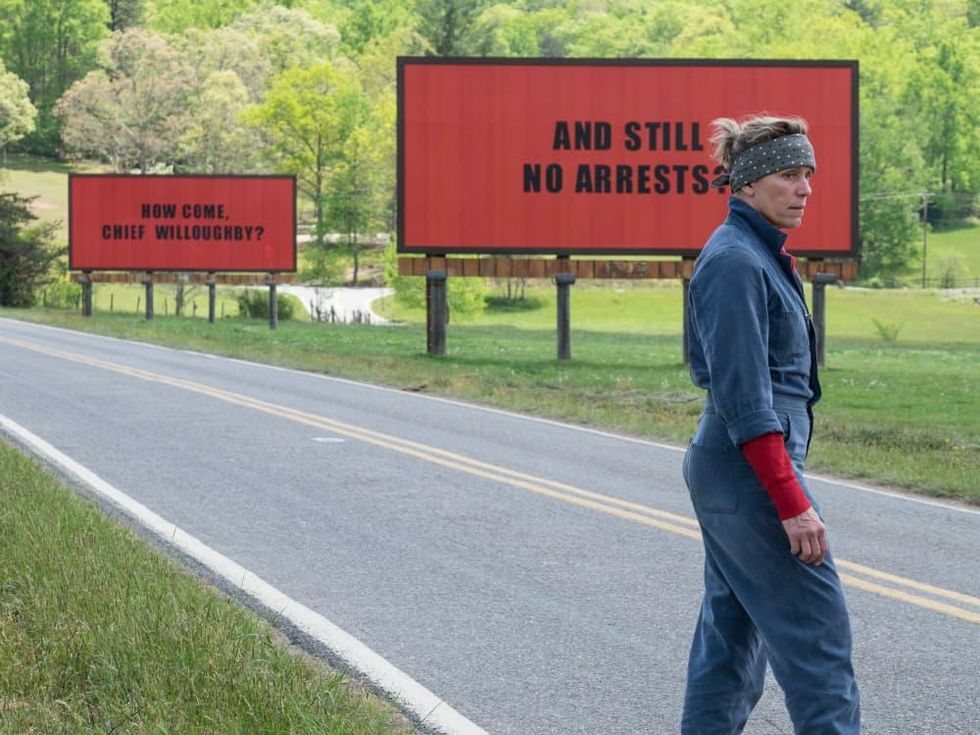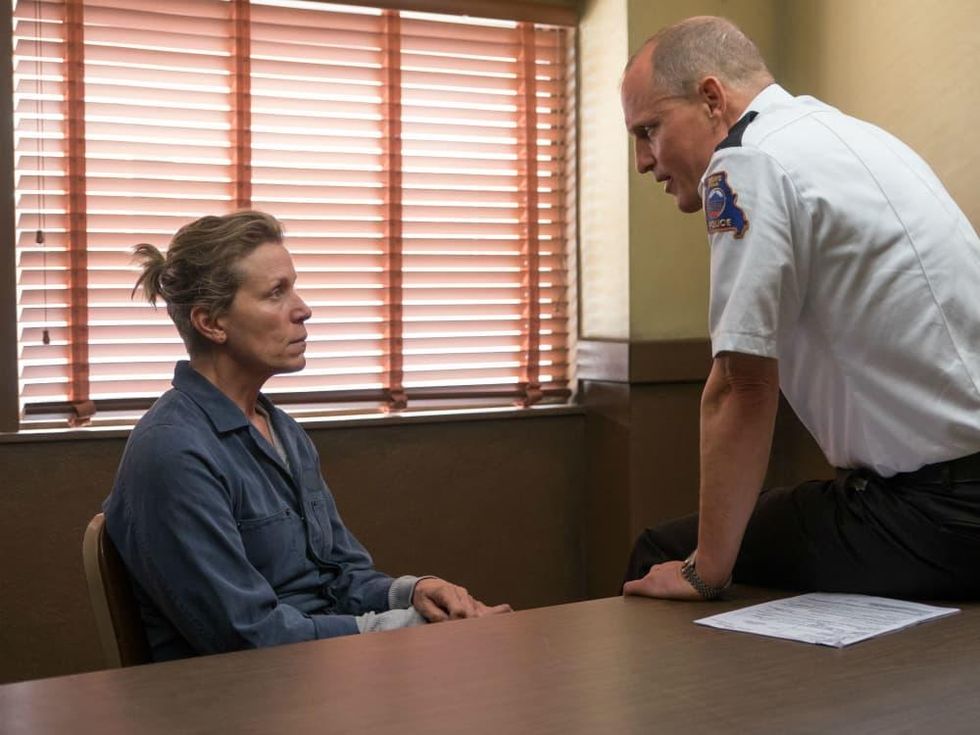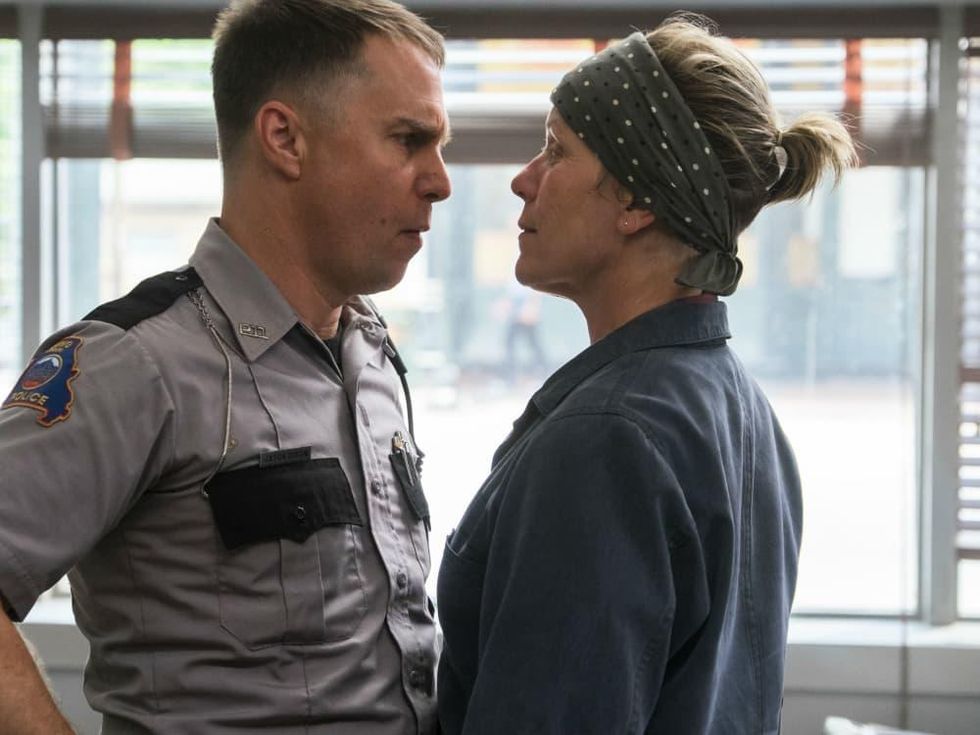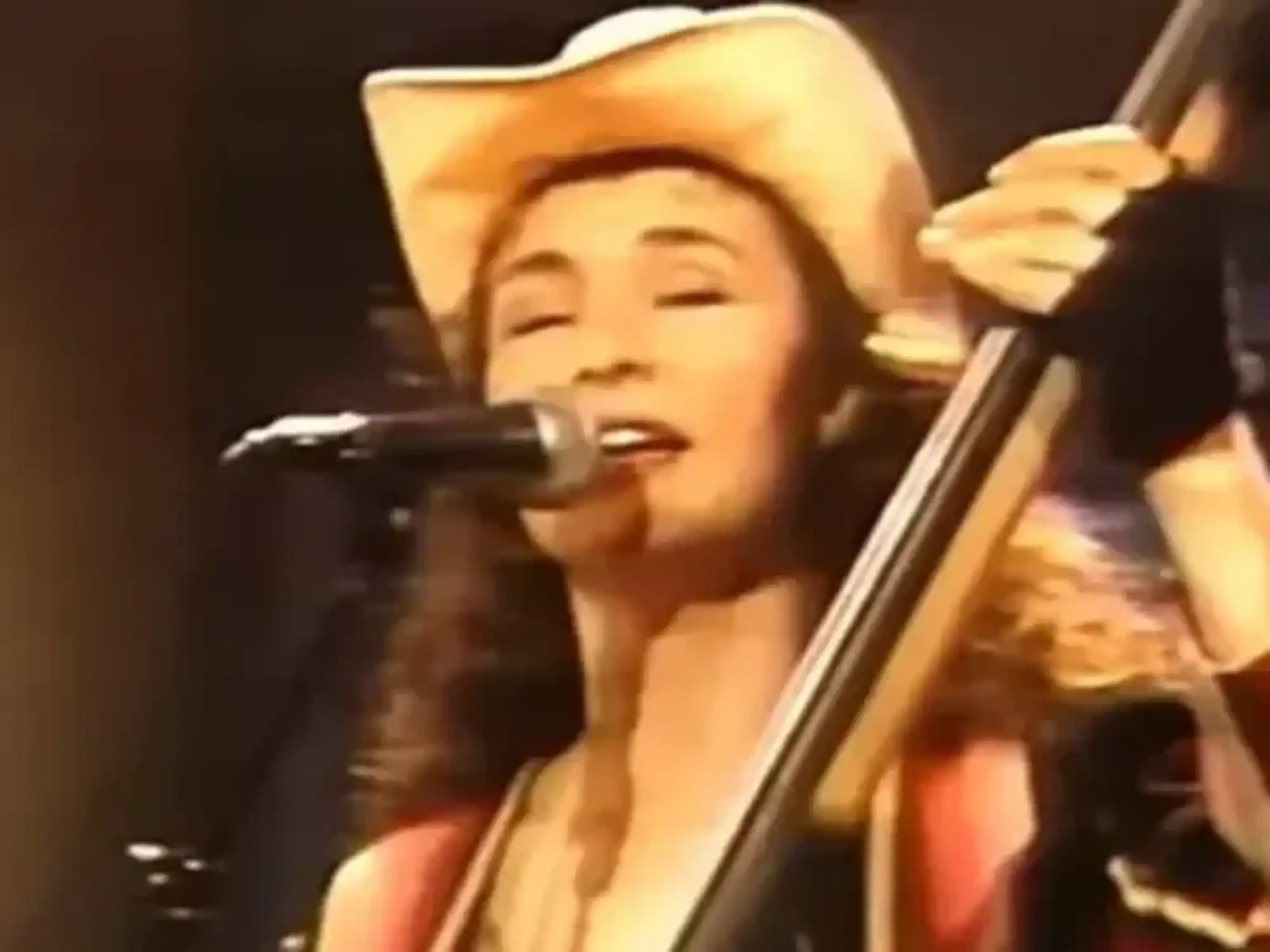Movie Review
Three Billboards Outside Ebbing, Missouri uses violent means for emotional ends
In just two films, writer/director Martin McDonagh has established himself as a filmmaker with unusual tastes, marrying dialogue and violence in ways reminiscent of Quentin Tarantino. His first two films — In Bruges and Seven Psychopaths — have become cult classics because of their distinct characters and styles, making his next film a must-see no matter the subject.
The unwieldy title of Three Billboards Outside Ebbing, Missouri is the first indication that audience members will be taken on a different kind of ride than they may be used to. Mildred Hayes (Frances McDormand), upset with the lack of resolution in her daughter’s murder case, puts up three billboards near her home on the outskirts of town, calling out Sheriff Bill Willoughby (Woody Harrelson) for not being able to find the killer.
Hayes’ actions cause a ripple effect throughout the community. Not everyone agrees with her tactic, especially the dimwitted and volatile Officer Jason Dixon (Sam Rockwell). But the more challenges she gets, the more determined she becomes, even if that means that she must commit acts of violence herself.
McDonagh has to strike a tricky balance in the film, keeping us on the side of a grieving mother even as she does things that are way out of bounds of accepted societal behavior. He does so by softening her outbursts with quieter moments like planting flowers underneath the billboards or reminiscing about her daughter, always keeping her motives at the forefront.
Despite what the advertising may lead you to believe, the film is not a bloody and profane free-for-all. It has its fair share of violence, but the story mostly meanders as Hayes interacts with Willoughby, Dixon, her son (Lucas Hedges), ex-husband (John Hawkes), and more. The profanity is so over the top at times, including out-of-the-blue slurs, that it’s mostly for comic effect.
Unfortunately, the plot wanders so much that it includes a handful of seemingly unnecessary subplots. One involves James (Peter Dinklage) and seems to have no purpose other than for him to be called “midget” multiple times. Thankfully, the film recovers in its final act, delivering an unexpected coda that satisfies in a way that stays true to the story without wrapping everything up in a tidy bow.
What makes Three Billboards especially different is that it offers no easy answers. Standard films would have Hayes unequivocally be the protagonist and Willoughby and Dixon be the bad guys. But McDonagh throws all kinds of nuance into the equation, a highly unusual approach for this type of movie, which keeps the audience off-balance through most of the running time.
McDormand has been giving standout performances for over 30 years, with somehow only four Oscar nominations (and one win, for Fargo) to show for it. She should be assured of a fifth nomination for this role, in which she runs a true gamut of emotions without making any of them seem false or contrived.
Three Billboards Outside Ebbing, Missouri is at once exactly the type of movie McDonagh likes to make and something completely new. At various points, it’s thoughtful, hilarious, touching, and violent, and somehow all of them meld together for one great experience.




